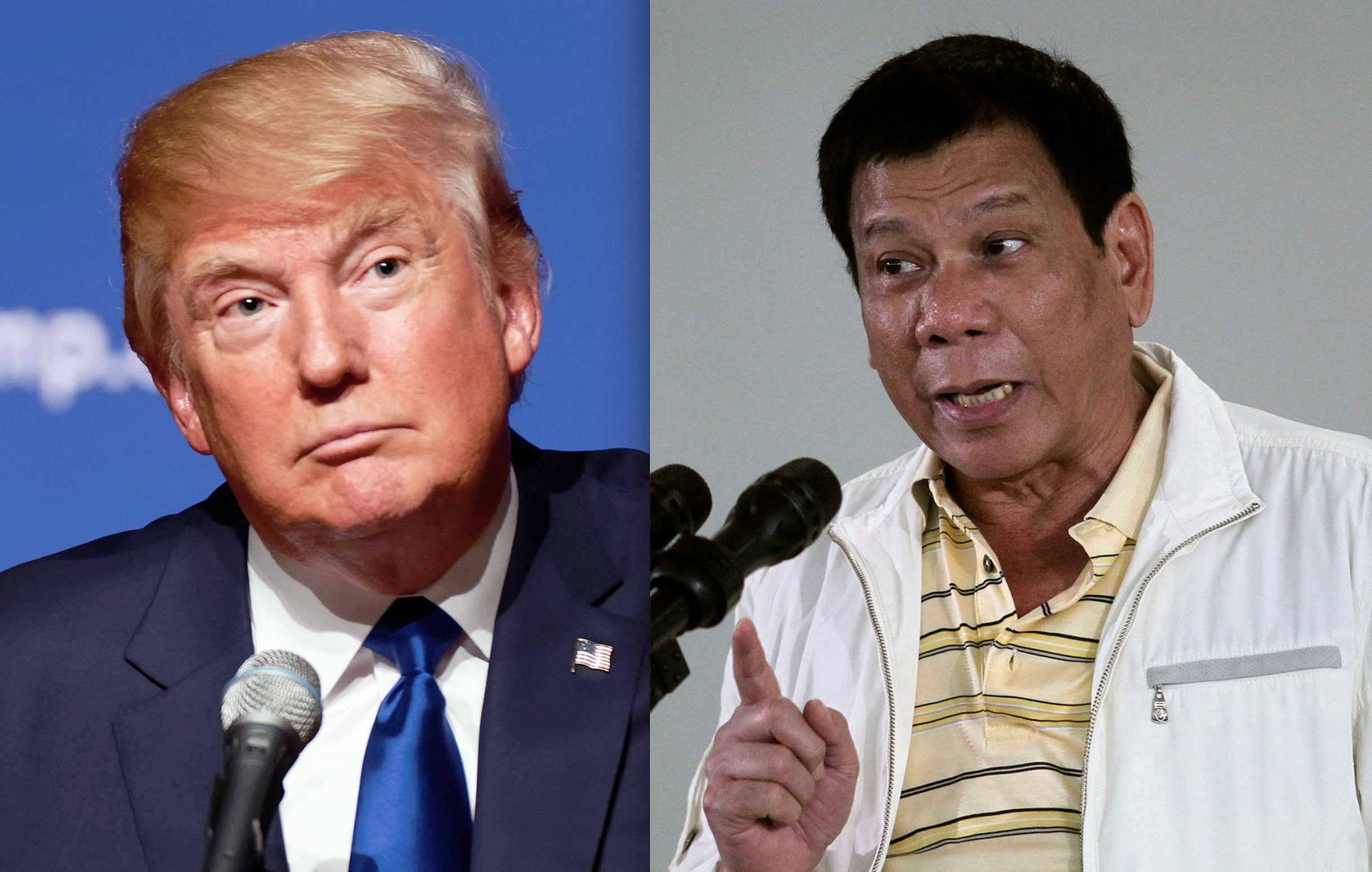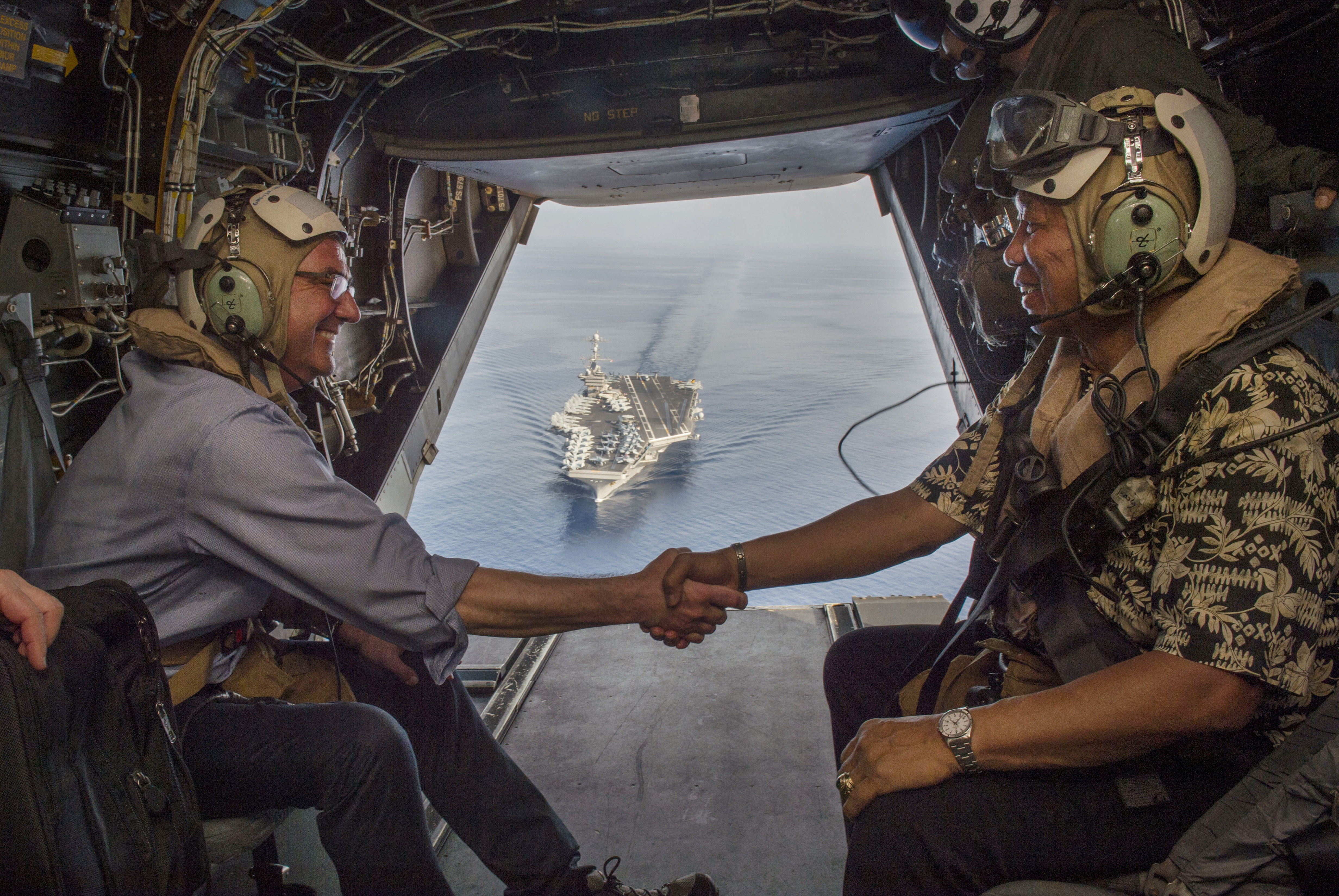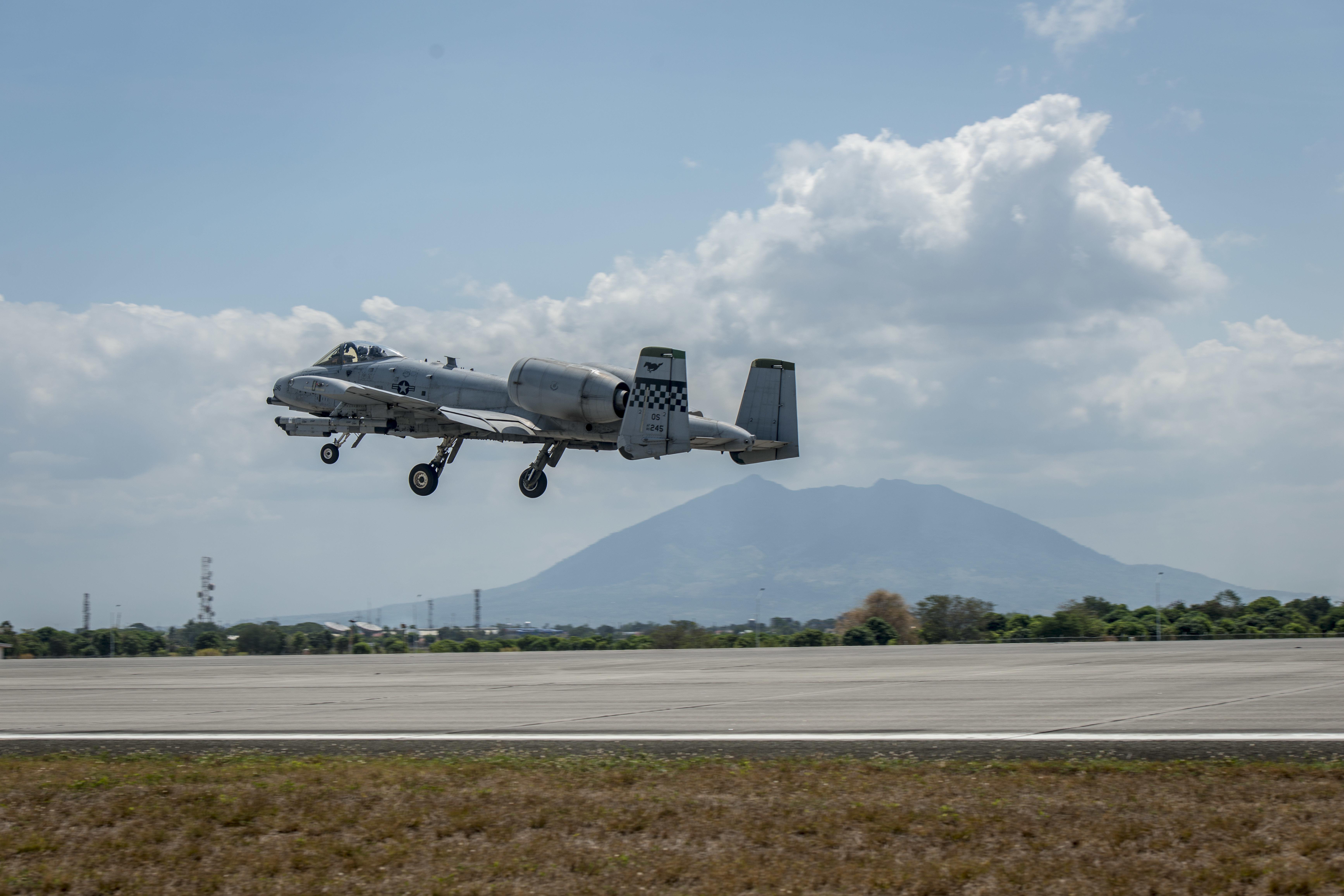
With an upset win President-elect Donald Trump has an opportunity to positively reset deteriorating U.S.-Philippines relations. The news of his victory was received with much elation by Philippines President Rodrigo Duterte. While the two executives may appear to be birds of a feather—certainly in their personalities, tactical use of strong language and statements of extreme policy—there are key differences that bring clear limits to the honeymoon period.
It can be argued that Duterte’s animosity over the past six months with Barack Obama’s administration was grounded in disagreements with U.S. foreign policy critical of his domestic programs and historical grievances and offenses stretching back to the 1898 Spanish-American War. It’s also likely that Duterte simply didn’t wish to commit to a position with a lame-duck White House that could be undone in an instant by the next occupant. By deliberately and publicly remaining aloof from Washington, it brought him some political capital with Beijing, in the form of a massive block of needed economic aid, and for now, a detente of sorts over the contested Scarborough fishing shoal.
One characteristic that does link the two leaders is their need to have a very experienced advisory board and Cabinet that can “manage upward,” given the mercurial nature of their respective superiors. Duterte has had a head-start on this—evidenced by the numerous instances where his on-the-spot pronouncements had to be “walked back” by his cabinet—‑notably in the areas of foreign policy and defense, as he attempts to chart an independent path for the Philippines after nearly 70 years of close American collaboration. President-elect Trump’s personnel decisions on key positions will speak volumes about how America’s stances on various issues will shift, or remain static. In Trump’s case, the selection is doubly important, given that he has no government experience at all.
An immediate limit to the honeymoon is around Duterte’s domestic programs—namely the drug war that spawned thousands of suspected extrajudicial deaths of drug and dealers.
Clearly, a Hilary Clinton White House would have continued applying pressure on the Philippines to enforce lawful prosecution of criminal activity and limit human rights abuses. While President Obama publicly drove a hard line regarding the killings and constantly called for reforms, the State Department did not explicitly block any aid to the Philippines during this time.
From a Blue Lantern program perspective — a U.S. State Department program to keep American-made defense products from falling into the wrong hands — State could have easily blocked the recent sale of more than 26,000 M4-style rifles bound for the Philippine National Police over their alleged involvement in the drug war and extrajudicial killings.
Duterte himself publicly canceled the sale, under the likelihood that his administration would be better viewed as taking direct action rather than being penalized once more by the United States over domestic matters. Yet Duterte’s Cabinet managed to persuade him to reverse the decision, noting that the sale would be honored by the United States, and by all accounts it has. Trump will need to decide how much parochial involvement his administration will have with nation-state practices that do not directly affect U.S. voters or interests. Duterte would welcome a less-critical White House, especially over matters that he considers non-consequential to America.

Alternatively, another area where Trump could advance or set back relations is on the nature and size of military aid. At this time, Duterte has played his cards close to his vest, keeping Enhanced Defense Cooperation Agreement intact while declaring the annual U.S.-Philippine exercise Balikatan (Shoulder to Shoulder) would continue, albeit focusing on territorial defense and humanitarian aid and disaster relief, which is a sharp departure from previous years, where the focus was interoperability and warfighting as part of a larger U.S. partner coalition. And then there is the abrupt termination of the Carat and Phiblex naval exercises. Here we again see nuances of Duterte not completely separating from the United States, acknowledging that Washington remains the security guarantor for the Philippines given its weak military. However, in an acknowledgement that Beijing is a growing regional power, his move to change exercise scope can be seen as a means of defusing tensions with China. By overtly changing the nature of Balikatan from an offensive warfighting exercise aimed at thwarting Chinese interests, to building internal capability and capacity to address domestic defense and disaster assistance concerns, he maintains ties with both Beijing and Washington.
Trump could adjust the aid and technical assistance models to meet this new scope; Duterte himself has openly expressed fears that an ISIS defeat in southwest Asia would send ISIS’s ranks fleeing to more exploitable climes such as the Philippines. Trump’s administration could remain strongly engaged by increasing technical assistance and aid to continue improving the Philippine military’s insurgency effort in the southern Philippines, notably an ISIS offshoot stronghold. This dovetails with Duterte’s shift of military modernization to prioritizing internal defense over external warfighting. Alternatively, he could finally correct the perception that Duterte’s advisers have been telling him all along—that the United States has deliberately been avoiding selling the Philippines more modern weapons to avoid being drawn into a potential flashpoint should the Philippine military unwisely use them on neighbors, such as China itself. By adopting a “business is business and it makes money for American manufacturers” philosophy, Trump could in one fell swoop, undo all those building years of suspicion among the Philippines military leadership, and give the U.S. defense Industry a much-needed boost in sales of new weapons, rather than just refurbishing retired assets and munitions.
Turning to the president-elect’s statements on foreign policy approaches, there’s not much substance with regards to the Pacific Rim strategy and especially with the current approach on containing Chinese expansion. Notably, his election run-up comments on reducing forward-deployed presence while making allies “pay more” for their own defense, has certainly brought anxious moments in places like Tokyo and Seoul.

But for the Philippines, which has not hosted a major U.S. presence since the high points of the late 1980s, this isn’t much of a deal-breaker. A clearer foreign policy will emerge when Trump has finished his key selections of Cabinet members, especially State and Defense. In the meantime, the U.S. military undoubtedly hopes that a single-party dominated executive and Congress can finally break the sequester cycle. By doing so, a lot more capabilities could be preserved and delivered in places other than southwest Asia. But Trump’s biggest decision will have to take into account China. Does he take a hard-line stance as he promised during the Campaign? Will it be blunt or nuanced?
Suffice it to say, while that decision is daunting, Duterte will need to navigate more hazardous waters. China still doesn’t trust him, and all that economic aid he came home with will have some sort of a price, whether it’s increased dependence upon Beijing and a national infrastructure wholly Chinese made and supported, and everything that comes with it, to potential concessions over the Spratleys, which opens him in turn to Impeachment possibilities. Indeed, it will be a tough sell to ever completely separate from Washington. The U.S. ties are very strong, especially in the military who prefer Western aid and weapons for both doctrinal and historical reasons, all the way to a population that is still very much positive for all things American. The only thing that is certain is it will be a wild ride after 20 January. Trump needs good guidance on a coherent Pacific strategy that takes into account a fellow mercurial executive in the Philippines. The next step in U.S.-Philippine relations is all on the president-elect to improve or not.





